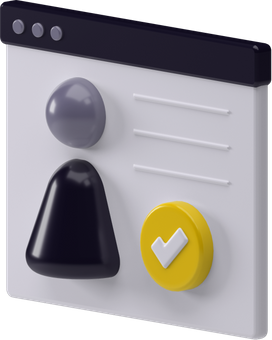

How Futures Trading Differs from Other Financial Instruments?
Primarily, the price of futures is dependent on another derivative, so it has no inherent value. The futures contract comes with an expiration date, which is not the case in other financial instruments.
In the case of stock, when you buy a stock it represents your share in a company that can be held for a long time. However, futures contracts have a predetermined period. Therefore, the timing factor in future trading is crucial.

Create account
Click the button below and follow our easy account setup process

Make a deposit
Get Ready to take advamtage of the next trading opportunity

Start now
Launch the platform now to get started
Futures Trading
Investors opt for futures trading to hedge investments and buy them at a predetermined price at an already decided specific date. According to the futures contract, the buyer must buy, and the seller must sell before the expiration date. This is just a rudimentary futures contract let us discuss more and understand the futures meaning and how it works.
Futures Contract
The futures contract is a financial product that involves derivatives trading. A derivative is a financial contract whose value is determined basis the value of the underlying asset. As mentioned earlier future contracts are similar financial products which are contracts made between buyer ad seller where the buyer buys the derivative at the fixed price. Eventually, the contract price fluctuates relative to the fixed price of the trade and thus profit or loss is generated.
What is meaning of futures trading?
Future trading involves obligation which makes it mandatory for the buyer and seller to abide by the agreement and complete the trade on a predetermined date and price. The predetermined time I futures trading is called delivery date and the fixed price is called futures price. To become more familiar with futures meaning you need to understand the following points –
The value of future contracts is influenced by the value of the underlying asset. If the value of underlying assets rises it increases the value of future contracts too.
Future contracts can be transferred and can be traded. If the seller wants to move out of the contract the seller can transfer the ownership to some other party. This applies to the buyer as well
Future contracts involve obligation from both the parties hence these contracts must be properly regulated to avoid chances of default. In India, SEBI looks after the futures trading to ensure smooth functioning
Future contracts follow a standardized procedure and cannot be customized by any individual and the conditions cannot be negotiated
The settlements in futures trading are done through cash. The differences in cash values are paid by one party to another
How to Trade a Futures Contract?
Now that you know what is future trading let us understand how to trade in the futures contract.
Futures trading is done basis the price movements rather than buying or selling a stock. Primarily the two types of participants involved in futures trading are the Hedgers and Speculators.
Speculators take risks while futures trading and make profits from the price fluctuations. Hedgers try to avoid risk, to protect themselves against price fluctuations.
You can either do future trading on your own or manage your account with the help of professionals also called commodity trading advisors. You can select a broker and start learning about the trading platform. You can develop trading strategies and have a proper plan before trading. Following are a few strategies you can use:
Long Call
The buyer buys trade at the earlier decided price on a future date
Short Call
When the seller sells the trade at the predetermined price on a future date
Short Put
In this strategy, the seller is obliged to sell however the buyer can exercise the option contract. The buyer usually practices this when the value of the stock has gone higher than the predetermined price.
Long Put
The buyer can buy the trade at a predetermined price and the seller must agree to that price.
Bull Put Spread
When a party sells and buys two contracts and the predetermined price of one of the contracts is higher than the other.
Bear Call Spread
Similar to the above two option contracts are involved in this strategy. The strike price of the contract bought should be higher than the strike price of the contract sold.
Advantages of Futures Trading
The futures trading is fair and lucid. It is monitored by SEBI which makes the agreements fair for both parties
It makes traders proficient with the idea of futures price of a stock
Depending on the present future price, it helps the trader to determine the future demand and supply of the shares
Lesser costs are involved in futures trading as the brokerage fee incurred on a futures contract are low
Disadvantages of Futures Trading
If the market conditions oppose the predictions made, then the trader can face large monetary liabilities
As the future contracts are dependent on the time the parties must complete deals regularly hence it becomes crucial to maintain capital accordingly
You need to understand futures trading thoroughly. You must learn about how trading on both sides of buying and selling works.
To sum up we understand the meaning of Futures and we know it is an agreement made at a fixed price in the future. It is dependent on the direction of the stock’s price fluctuations. A futures buyer can make profits when the price rises while a seller makes profits when there is a fall in the stock price.





